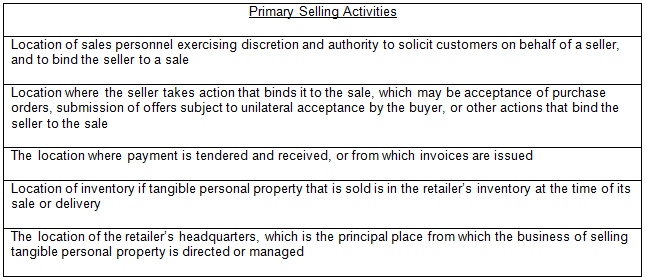The First District of the Illinois Appellate Court, in Chicago Bears Football Club v. Cook County Department of Revenue, 2014 IL App (1st) 122892 (Aug. 6, 2014), has affirmed an administrative determination finding the Chicago Bears owe Cook County over $4.1 million in amusement tax and related interest, on the basis that the amenities and privileges enjoyed by Bears premium ticket holders are taxable admission charges. The ordinance at issue imposes tax on “admission fees or other charges paid for the privilege to enter, to witness or to view such amusement” but excludes “any separately stated charges for non-amusement services or for sales of tangible personal property.” Cook County, Ill. Code of Ordinances, part I, ch. 74, art. X, § 74-392(a), (e).
The charges at issue include those for club level seats, luxury suites and the Skyline Suite. For club level seats, the assigned seat location varies from the 50-yard line to the end zone. On the face of the ticket, the charge for the seat and for the amenity license is separately stated. The price of the seat is constant regardless of location, while the price of the license varies depending on the seat location. Amenities provided to a club seat ticket holder include access to a “club lounge” for use before, during and after the game. The lounge has buffet and bar areas (food and beverage not included in ticket price), better food selection than that available in the regular seating area and high-definition televisions for viewing the Bears game in progress and other National Football League games. A club level ticket holder cannot view the entire field from the lounge. Other amenities provided include rights to early ticket purchases to playoff games and non-Bears game events at Soldier Field, special parking privileges, invitations to autograph sessions and merchandise giveaways, free gameday programs and invitations to appreciation events year-round.
The luxury suites provide a private enclosed area for up to 20 guests. Seating is not assigned. Tickets list a single price. Amenities of the suite include individual temperature controls, private bathrooms and high-definition televisions. Food and beverage generally are not included in the ticket price. Other available amenities include first option to use the suite for most non-Bears events at Soldier Field, travel arranged by the Bears for certain away games, invitations to non-football gameday events, participation in gameday drawings for special prizes, parking passes, special recognition in Bears publications and invitations to appreciation events year-round.
The Skyline Suite is an open area shared by multiple licensees and has non-assigned seating. Food and beverage are included in the price. Like luxury suite tickets, a single price is listed. The same amenities available to luxury suite ticket holders are available to Skyline Suite ticket holders.
The appellate court affirmed the county’s assessment, concluding tax is owed on 100 percent of the club seat ticket price and on 60 percent of the luxury suite and Skyline Suite licenses. For club level seats, the court reasons that [...]
Continue Reading
read more



 Subscribe
Subscribe




